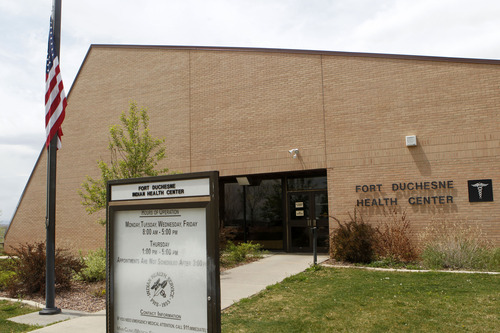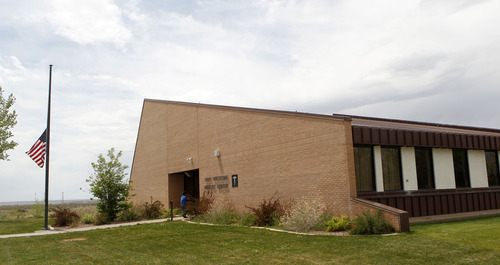This is an archived article that was published on sltrib.com in 2013, and information in the article may be outdated. It is provided only for personal research purposes and may not be reprinted.
In Fort Duchesne, a federally funded health clinic offers free medical care — prenatal care, well-baby checks, dentistry and eyeglasses — to patients with Ute Indian ancestry.
But under the Affordable Care Act, some of the clinic's patients may have to either buy health insurance they don't need or pay a tax penalty.
American Indians are exempted from the act's upcoming mandate to buy insurance, but its definition is limited to those who are members of approximately 560 tribes recognized by the U.S. Bureau of Indian Affairs.
Indian Health Service centers, however, can extend care to some patients with an Indian heritage who are not members of federally recognized tribes. The centers are funded as part of the government's treaty obligations to tribes dating back nearly a century.
The conflicting definitions "will have minimal impact" in Utah, predicts Melissa Zito, Indian health liaison for the Utah Department of Health, who is in regular contact with tribal leaders and elders. "They have not brought this up as a huge concern."
About 33,000 Utahns identify as Native American or Alaska Native alone, according to the 2010 Census, she pointed out.
And that number closely matches tribal enrollment in the state, which indicates most American Indians in Utah won't be penalized by the health law, Zito said.
—
A national impact • The differing definitions are expected to have a bigger impact across the country. There are more than 100 tribes nationwide that are recognized only by states — none is in Utah — and those tribal members may face the penalty even if they qualify for free care in their states.
The Internal Revenue Service has not yet decided how the agency will verify who qualifies as Indian, agency spokesman Eric Smith told The Associated Press. The IRS and U.S. Treasury have scheduled a May 29 public hearing on proposed rules establishing who qualifies for an exemption from the insurance-coverage requirement.
Valerie Davidson, a senior director at the Anchorage-based Alaska Native Tribal Health Consortium, estimates that about a third of the 140,000 Alaska Native population would have to pay the health care penalty.
Molin Malicay, who directs the Sonoma County Indian Health Project in California, estimates roughly 2,000 of his patients would face the penalty.
"In the clinics in Central and Northern California, we see many of us Indians who are not considered Indians in the eyes of the federal government because the government itself terminated their tribes," Malicay said. "We're trying to get some of these people covered for care under Medicaid, but there is still so much confusion in the pamphlets and videos about who is Indian (that) it makes it hard to give advice."
In an interview with the AP, U.S. Department of Health and Human Services spokeswoman Erin Shields said the federal government is still seeking to establish how many people might be affected, although Indian health advocacy groups estimate it could be up to 480,000.
Any changes, she noted, would have to be done by Congress.
—
A membership surge? • It's not known how many people without membership in a federally recognized tribe use the Indian Health Service clinics that cover Utah: the Uintah-Ouray clinic; a clinic in Elko, Nev., serving the Goshute Reservation; a clinic in Window Rock, Ariz., serving the Navajo Reservation; and a clinic at Fort Hall in southern Idaho serving the Northwestern Band of the Shoshone.
And while 17,000 Utahns identified themselves on the 2010 Census as bothNative American and another race, those people are unlikely to be qualifying for the free care from the clinics, Zito said.
Tribal leaders in Utah further note members and others have several options for care.
"If they qualify for Medicaid or Medicare, they can obtain that or buy private insurance on their own," said Ed Naranjo, chairman of the Confederated Tribes of the Goshute, located in Ibapah on the Utah-Nevada line.
The Northwestern Band enrolls anyone who can prove that at least one great-grandparent was a member of the tribe. That equates to a one-eighth blood tie to the tribe.
Walker said it's possible the insurance mandate will trigger a surge in applications for membership as people seek the exemption for American Indians.
Shawn Jimerson, development director for the Urban Indian Center of Salt Lake, agrees. The center does not provide care directly, but refers American Indians to community services. In any given year, "We probably get 100 or so inquiries from individuals who aren't enrolled in a tribe," but believe they qualify, he said. "We refer them to start the enrollment process."
Tribune reporter Kristen Moulton and Associated Press reporter Garance Burke contributed to this story.





